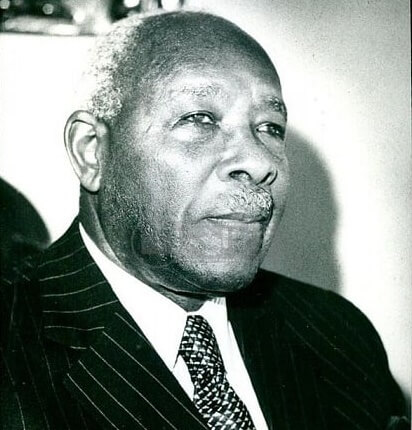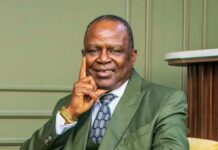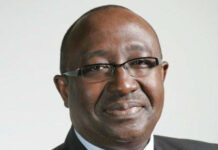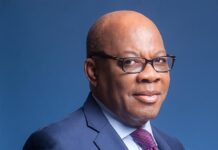For his monumental contributions to the growth of the nation’s jurisprudence through notable judgments while on the bench; for his instrumental role in the establishment of the Nigerian Law School, one of the best law training institutions in the world; for playing the role of a peacemaker during challenging political situations in the country between 1964 and 1966 and for using the instrumentality of the law to forge a united Nigeria, the first indigenous Chief Justice of the Supreme Court of Nigeria, Sir Adetokunbo Ademola, GCON, KBE, PC, SAN is our ICON for the week.
Sir Adetokunbo Ademola was born on February 1, 1906, into royalty as the son of Prince Ladapo and Princess Tejumade Ademola. His father was a regent of the Egba United Government in Lagos who later became Ademola II, the Alake of Egbaland, Abeokuta, a historic walled city of the Egbas in south-western Nigeria.
He started his primary education at the Roman Catholic School in Itesi, Abeokuta. He attended St Gregory’s Grammar School, Obalende and King’s College, Lagos for his secondary school education. He finished his secondary education in 1925. From 1928 to 1931, Ademola studied Law at Selwyn College, University of Cambridge.
Sir Adetokunbo was called to the bar at the Middle Temple in London in 1934. After returning to Nigeria and at the insistence of his father, he joined the Civil Service and from 1934–35, he worked as crown counsel in the Office of the Attorney-General. He then joined the unified Nigerian administrative service and for a year, he was posted to Enugu as assistant secretary at the southern secretariat, Eastern Nigeria. He left the service and started a private practice from 1936 until 1939, when he was appointed Magistrate of the Protectorate Court. In 1938, he joined the Nigerian Youth Movement. As a magistrate, he was posted to various Nigerian towns; Ademola worked in Warri from 1939-1946, and then returned to Lagos in 1946 to preside at St Anna Court. In 1947, he was posted to Opobo. In 1949, he became the third Nigerian to be appointed a puisne judge. In 1948 he served as a member of the commission for the revision of court legislation.
In 1955, a year before Western Nigeria became internally self-governing, Sir Adetokunbo was appointed Chief Justice for Western Nigeria, thus becoming the first Nigerian head of the judiciary anywhere in the country. His string of ‘firsts’ continued when, three years later, he became the first Nigerian Chief Justice of the entire Federation of Nigeria between 1958 and 1972.
As Chief Justice, he played the role of peacemaker in two political events in the country. In 1964, after the stalemate of national elections, Nnamdi Azikiwe, the president, refused to call any party to form a government until the intervention of Sir Louis Mbanefo, the Chief Justice of the Eastern region and Ademola. He later went on to play a calming role in the aftermath of the 1966 coup when some northern officers wanted to secede from the country.
As Chief Justice, Ademola was involved in some notable judgements during his tenure, in both Regina vs Ilorin Native Authority and Ayinke vs Ibidunni, he delved into the issue of customary law. He was also involved in various constitutional cases during the period. Some of the cases are Doherty v Abubakar Balewa, Adesoji Aderemi v Samuel Akintola and Olawoyin vs the Commissioner of Police. Sir Adetokunbo, along with Dr. Teslim Olawale Elias (who succeeded him as Chief Justice of Nigeria), was instrumental in the establishment of the Nigerian Law School. Prior to its establishment, legal practitioners had had to qualify at the English Bar.
During Ademola’s tenure, the federal government changed from colonial rule to a parliamentary system, then to military rule. Ademola as head of the judiciary was not found wanting as a man respected by his peers and who was able to compromise and accord respect for the judicial branch of government. However, some critics perceived he was lenient towards the executive branch. Ademola preferred a unified judiciary. Even though he was once a regional Chief Justice, it did not deter his preference for a unified structure.










